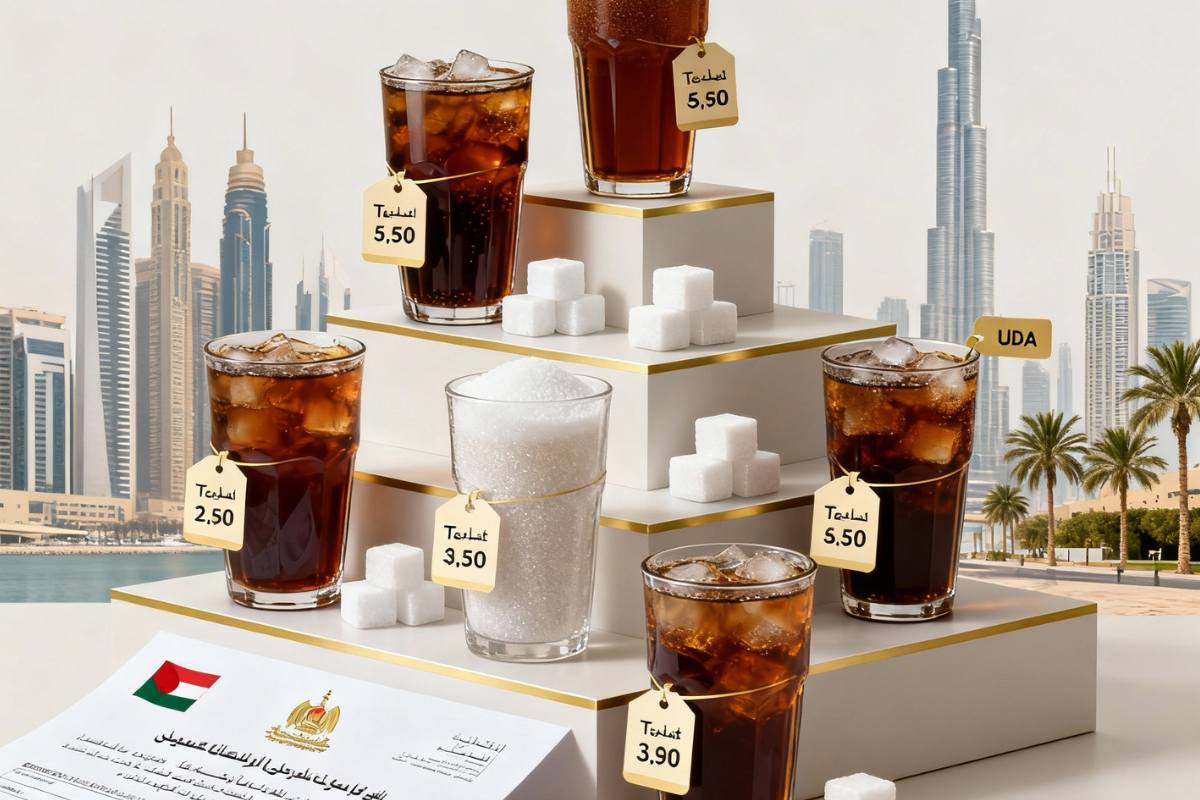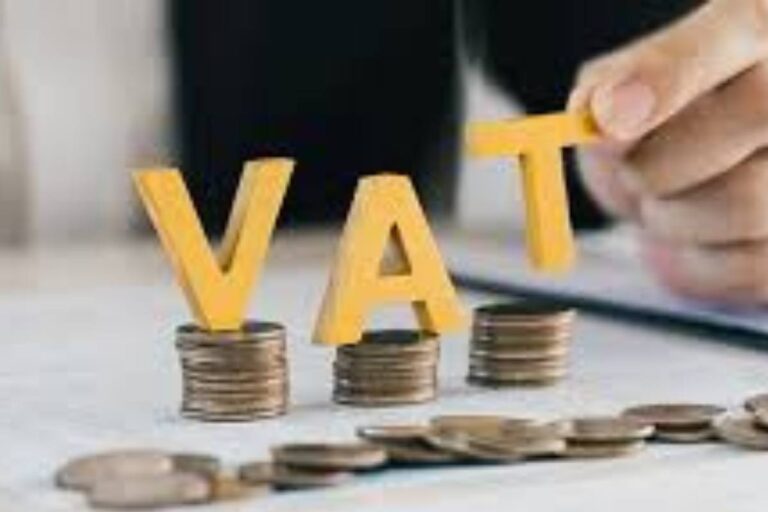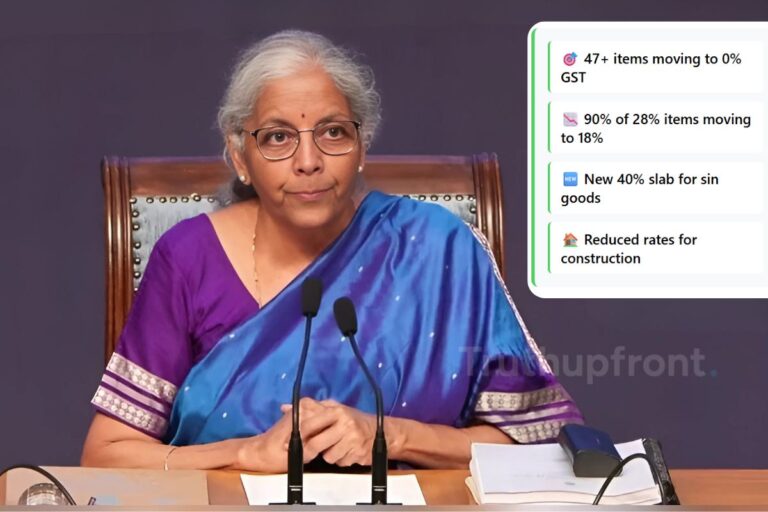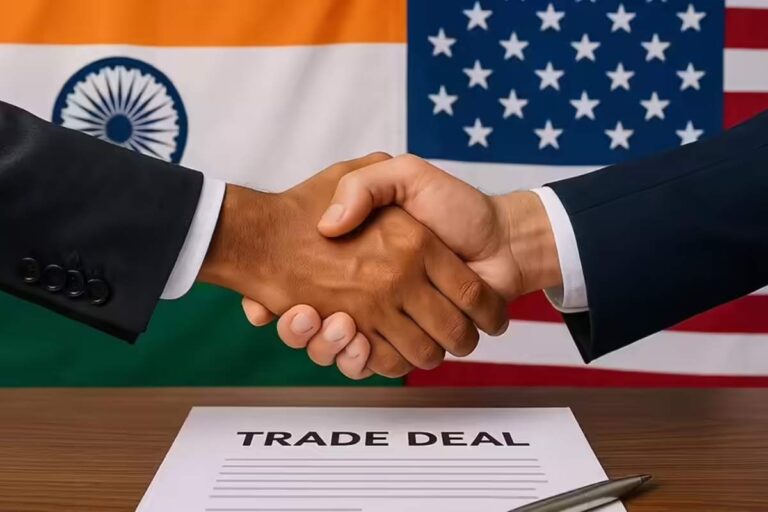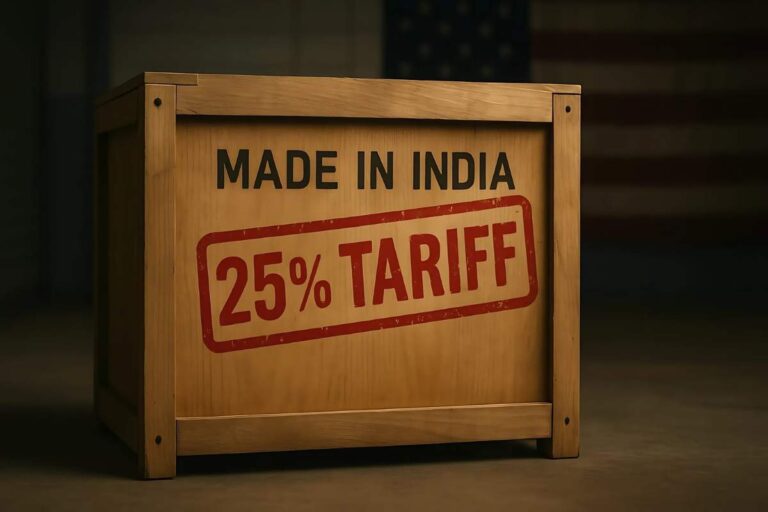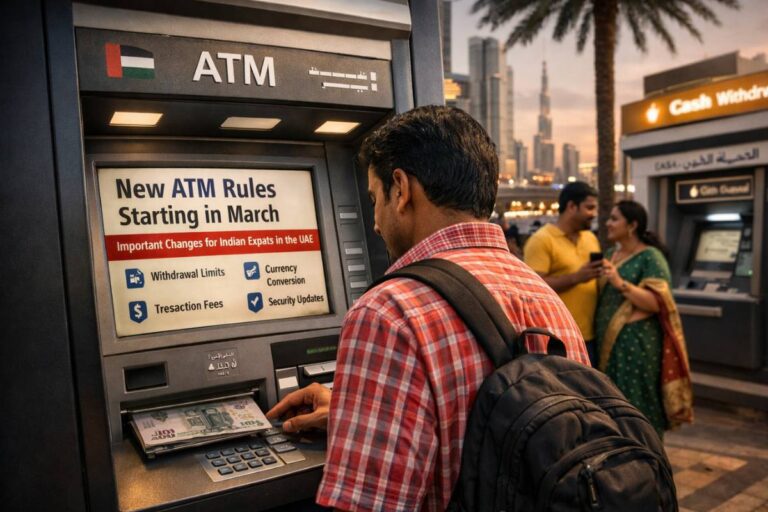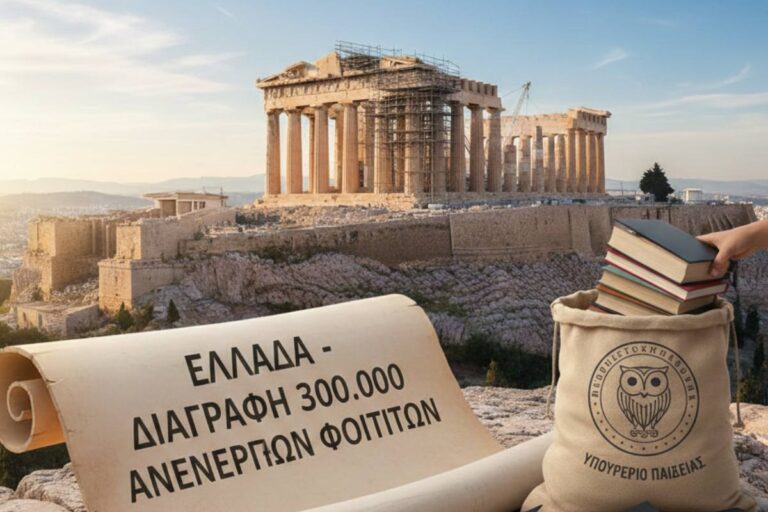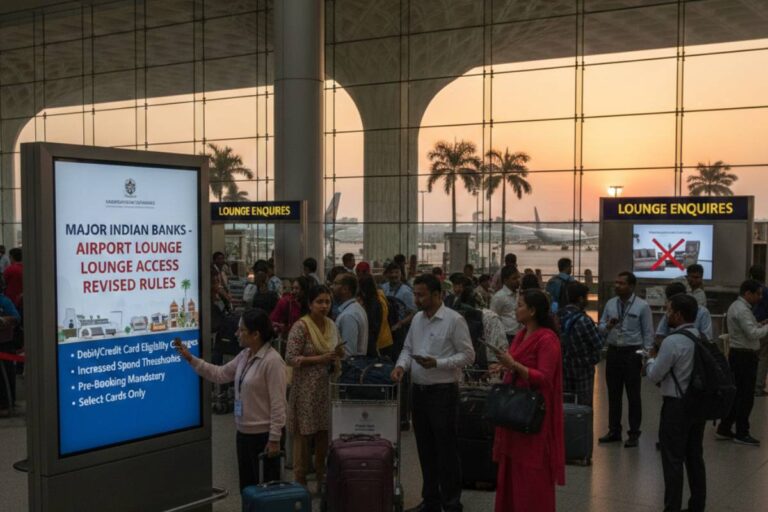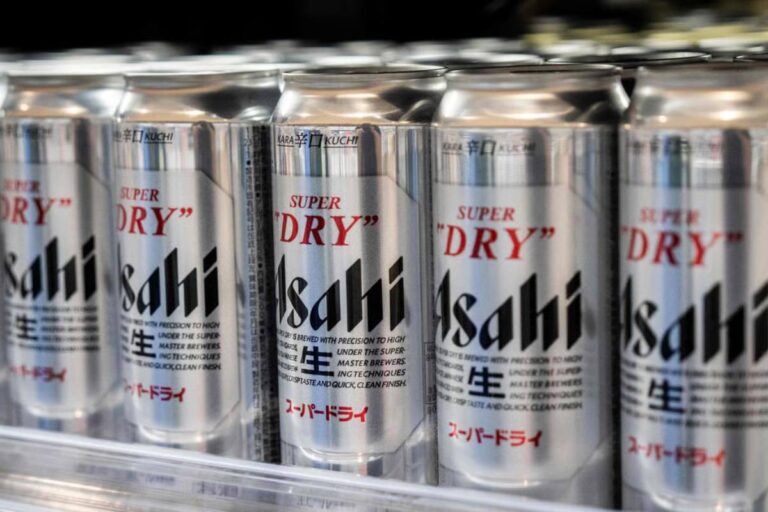The UAE is making big changes to its excise tax policy on sugary drinks, and this time it’s not just about putting a flat rate on everything. The country will switch to a tiered tax system based on sugar on January 1, 2026. The rates will be based on how much sugar is in each drink. It’s a planned move. One that brings the Emirates in line with the Gulf Cooperation Council’s higher standards while also dealing with rising health concerns head-on.
But that’s not the whole story. While the Ministry of Finance works on these changes to the beverage tax, the Federal Tax Authority has reported something just as surprising: corporate tax compliance rates that are higher than international standards. More than 640,000 businesses have signed up for corporate tax, and hundreds of thousands have filed their returns before the deadline. These two changes show that the tax system is changing quickly, and businesses are having a hard time keeping up.
The Sugar Tax Change: From Flat to Tiered
This is how it worked before. All sweetened drinks, whether they were carbonated or not, were subject to a flat 50% excise tax. Easy. Easy to guess. But also very direct. That will change next year. The new system uses a “tiered volumetric model” to figure out how much tax to charge based on how much sugar is in 100 milliliters.
This framework puts drinks into different groups:
- High-sugar drinks: 8 grams or more of total sugar and sweeteners per 100ml
- Moderate-sugar drinks: Between 5 and 8 grams per 100ml
- Low-sugar drinks: Less than 5 grams per 100ml
- Artificially sweetened beverages: No excise tax if they only have artificial sweeteners like aspartame, sucralose, or stevia and no added sugar
What about energy drinks? They are keeping the 100% excise rate the same. Nothing has changed there.
The Cabinet will decide on the exact tax rates for each tier, but the message is clear: the more sugar you put in a bottle, the more you will have to pay in taxes.
Why the Change is Important
The change isn’t happening in a vacuum. According to the International Diabetes Federation, about 20.7% of adults in the UAE have diabetes. This is a scary statistic for public health. The number of people who are overweight is going up. There are more and more cases of type 2 diabetes. Health policymakers are going after sugary drinks with all their might.
“The new system encourages manufacturers to cut back on added sugars and gives consumers more information to make better food choices,” the Ministry of Finance said. Health experts have praised the policy, saying it is a big step toward fighting metabolic syndrome and diseases caused by bad habits.
But it’s not only about health. The UAE is also now in line with the new GCC rules for excise taxes because of this move. This regional alignment is important, especially for manufacturers and importers who do business in Gulf markets. Standardizing rules makes things less complicated, makes it easier to follow the rules, and gives businesses clearer guidelines to follow.
What Companies Need to Do
The Federal Tax Authority is not leaving producers, importers, and distributors in the dark. Companies need to start looking at the formulas and sugar levels of their products right away. After the policy goes into effect, all sugary drinks must be tested and registered, with certified lab reports showing their sugar content.
What if a product doesn’t have a UAE Certificate of Conformity? It is automatically put in the “high-sugar” category until lab results show that it isn’t. That is a costly mistake. So companies have a strong reason to get their paperwork in order before January.
But there is a silver lining for some producers and importers. If they’ve already paid the current 50% excise tax on goods before the new system starts and those goods haven’t been sold yet, they can deduct part of the tax they paid before if the new rate is lower. It’s a temporary measure to help with the change.
Corporate tax compliance is on the rise
The Federal Tax Authority has been quietly celebrating something else: record levels of corporate tax compliance, even though the beverage tax is getting a lot of attention. The agency said that more than 640,000 businesses have signed up for corporate tax and that the rates of compliance are higher than the global average.
Khalid Ali Al Bustani, the FTA’s Director General, said that the high turnout was due to more people being aware of taxes and the EmaraTax digital platform being easy to use. He said, “We have processed hundreds of thousands of corporate tax returns and annual declarations from registrants whose tax period or financial year ended on December 31, 2024.” “This high level of tax compliance has been reached because more and more businesses are becoming aware of taxes.”
During busy filing times, the FTA handled thousands of requests every day and provided immediate help through its Call Center. There has been a two-year awareness plan that is still going on in 2025. It has included more than 154 awareness sessions, both in person and online, with about 48,000 people attending.
The UAE’s corporate tax system is pretty simple, which is a plus. Businesses don’t have to pay taxes on the first AED 375,000 of taxable income. After that, they have to pay 9% on their profits. If certain conditions are met, qualifying Free Zone entities can keep a 0% rate. Starting on January 1, 2025, the OECD Pillar Two framework says that large multinational companies with global revenue of more than €750 million must pay at least 15% in taxes.
The Infrastructure for Compliance
What is making these compliance rates so high? Al Bustani says it’s a combination of things. With the EmaraTax platform, businesses can finish all of their corporate tax tasks in just a few minutes. The “Zero Bureaucracy” program has been making the system better all the time. This makes things easier for taxpayers and cuts down on the work they have to do.
The FTA also started proactive outreach campaigns. Experts made thousands of phone calls to business taxpayers to remind them of their responsibilities and help them avoid penalties for late payments. These efforts were made even stronger by SMS notifications, media outreach, and social media.
Policy facilitations were also helpful. The Cabinet decided that businesses that are late in registering won’t have to pay administrative fines as long as they file their tax return within seven months of the end of their first tax period. The FTA also gave some taxpayers more time to file their taxes and gave others a break for not updating their tax records on time.
Al Bustani said that the results showed “the success and efficiency of the legislative and procedural tax system, which follows international best practices and offers the latest digital compliance tools around the world.”
Effects on the economy
The two changes, reforming the tax on sugary drinks and making sure that businesses pay their taxes, show that the tax system is growing quickly. The sugar-tiered model is likely to lead to changes in the recipes of drinks in the beverage industry. Manufacturers have a strong financial reason to cut down on sugar, which could change the drinks that are available in the UAE over the next few years.
The corporate tax system is becoming more stable for businesses in general. Companies seem to have gotten used to the 9% tax on profits over AED 375,000, which went into effect for financial years starting on or after June 1, 2023. The UAE is still competitive because smaller businesses don’t have to pay taxes up to a certain amount, and Free Zone businesses that meet certain requirements don’t have to pay taxes at all.
But it has become harder to follow the rules. An industry report cited a survey that found that 94% of UAE businesses say things have gotten more complicated since the corporate tax was introduced. In 2024, the average cost of complying with corporate laws went up by 23%. And 78% of multinational companies changed how they did business in the UAE to save money on taxes.
Regional Leadership in Money Policy
The UAE is a leader in using tax policy to improve public health because it taxes sugary drinks based on how much sugar they contain. The tiered model is more advanced than the flat-rate systems that are still used in other places. It sends a clear message to manufacturers: if you change the way you make your products, you’ll pay less tax. If you keep adding sugar, you’ll have to pay more.
This fits with bigger health plans that were made in collaboration with the Ministry of Health and Prevention. The policy shows that the UAE is dedicated to long-term improvements in public health and sustainable development goals.
The high compliance rates for corporate taxes show that the UAE has avoided the problems that often come with new tax systems, like confusion, backlash, and widespread non-compliance. Instead, businesses have mostly accepted the system, thanks to digital infrastructure, clear instructions, and proactive outreach from the government.
What Happens Next
As January 1, 2026, gets closer, beverage companies will be keeping a close eye on the Cabinet’s announcement of the exact per-liter tax rates for each sugar tier. Those numbers will decide how much things cost, when to change the formula, and where to put the product on the market.
For businesses that pay taxes, the focus shifts to making sure they keep following the rules and that Pillar Two rules for big multinational companies keep being put into place. The FTA has made it clear that it will keep its support infrastructure, awareness sessions, digital tools, and proactive communication in place to keep compliance rates high.
The Ministry of Finance has made changes to the excise tax as part of its ongoing work to modernize the tax system and make sure it stays fair, efficient, and in line with the UAE’s long-term social and financial goals. In the meantime, the corporate tax system still follows the UAE leadership’s orders to keep the legal system flexible and encourage people to follow the rules.
It’s a balancing act. One side is using tax policy to push people to make healthier choices and change the way products are made. On the other hand, creating a corporate tax system that brings in money without getting in the way of business growth. For now, it looks like the UAE is able to handle both.








